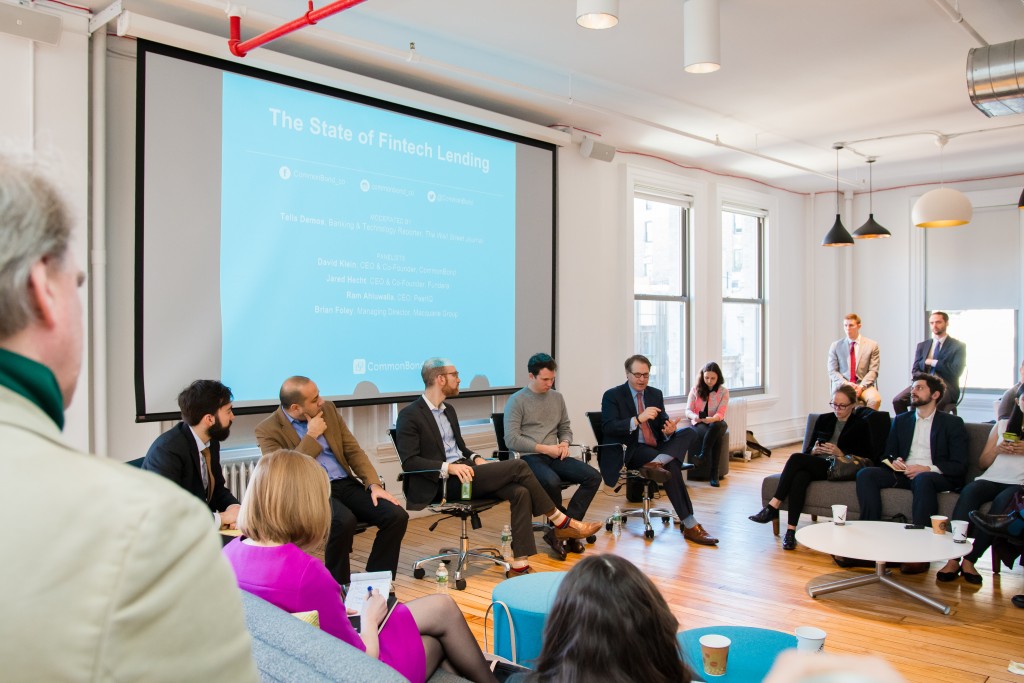Marketplace Lenders Will Return to Their Peer Roots, Insiders Say

Will marketplace lending revert back to peer-to-peer lending? Insiders said “yes,” during a panel hosted at CommonBond’s NYC office yesterday. Moderated by WSJ reporter Telis Demos, The State of Fintech Lending included two panelists that had something to say about the greatly exaggerated death of “peers” in peer-to-peer lending.
Marketplace lenders will look to tap back into individual investors, said CommonBond CEO David Klein, specifying that accredited investors were an obvious choice but that true retail investors would also play a role.
Fundera CEO Jared Hecht said marketplace lenders can achieve a “network effect” with retail investors, something not likely to occur with institutional sources. The network effect is a phenomenon whereby a good or service becomes more valuable when more people use it. “Retail investors are more loyal to a specific platform,” Hecht said.
Klein explained that the retreat from peers over time stemmed from Lending Club and Prosper’s historical issues with the Securities and Exchange Commission. Both companies faced an existential threat in 2008 over the alleged sale of unregistered securities to unsophisticated investors. They were able to overcome this by agreeing to register every single loan offered on their platforms as a security with the SEC. Today, that has led to both companies becoming part of the top five filers of securities in the US, Klein said. While this registration process is mostly automated, the road to get there was complicated and thus there was a shift towards institutional sources for most new entrants.
But there are signs it’s coming back. Two weeks ago, small business lender StreetShares announced that retail investors would soon be able to invest on their platform. But even then, StreetShares has accomplished this through a less complicated process than the ones Lending Club and Prosper adhere to. Under the JOBS Act’s Regulation A+, startups can raise up to $50 million over a 12-month period from retail investors.
The return path may be slow, however. Prosper for example, still sells 92% of its loans to institutional sources and only 45% of Lending Club loans are sold to retail investors. Even they are not entirely peer-to-peer.
The marketplace lending industry will inevitably come to respect the “peer” again, panelists concluded. “2016 will be the year that marketplace lenders will go from the mainstream to maturity,” Klein said.
Last modified: March 30, 2016Sean Murray is the President and Chief Editor of deBanked and the founder of the Broker Fair Conference. Connect with me on LinkedIn or follow me on twitter. You can view all future deBanked events here.































